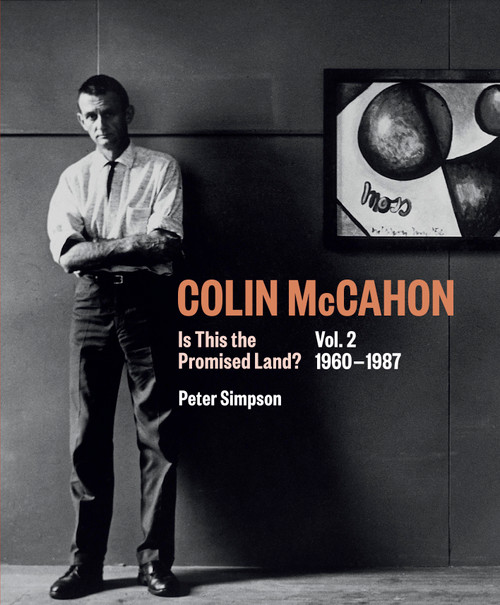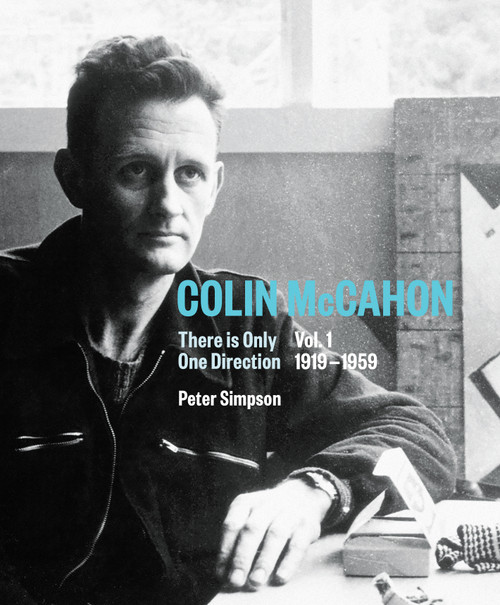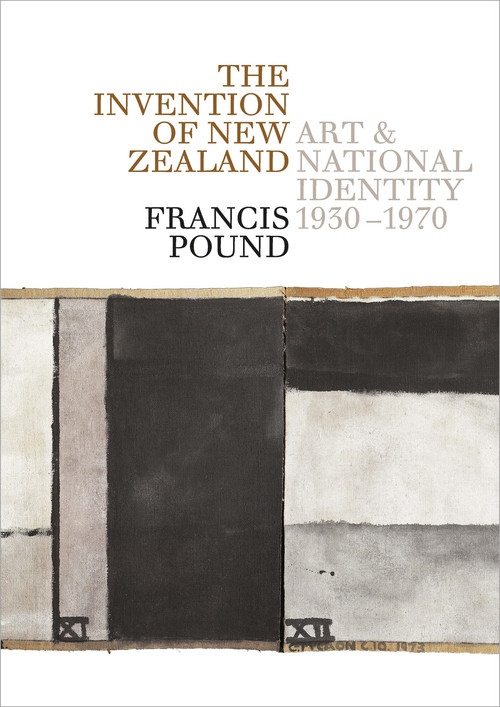
Gordon Walters
Francis Pound
The first substantial monograph on the art of one of this country’s most influential artists, Gordon Walters.
In this remarkable study by the late Francis Pound, author of the landmark Invention of New Zealand, we are introduced to the making of a New Zealand modernist – tracing the work of Gordon Walters (1919–1995) from student charcoal sketches in the 1930s to the revelation of the mature Koru works at the 1966 New Vision Gallery exhibition in Auckland.
Pound follows Walters through steps and missteps, explorations and diversions, travel in Aotearoa and overseas, as the artist discovers new forms, invents others and discards many more. Pound looks hard at the paint, the brushes, the rulers, the scrapbooks, to reveal an artist at work. And, resolutely internationalist like the artist, the author provides not only astute insights into Walters’ art, but also a guide to the elements and ideas that informed the work – notably, Māori and Pacific art, surrealism, Mondrian, De Stijl, the Bauhaus and Euro-American abstraction, conceptual art and minimalism.
With Francis Pound accompanying us through the work as guide, critic, wit and enthusiast, Gordon Walters is an extraordinary journey into twentieth-century art.
Author
Dr Francis Pound (1948–2017) was a New Zealand art historian, curator and writer. He taught for some years in the art history department of the University of Auckland before becoming an independent art curator and writer. His books include Frames on the Land: Early Landscape Painting in New Zealand (Collins, 1983), The Space Between: Pakeha Use of Maori Motifs in Modernist New Zealand Art (Workshop Press, 1994), Stories We Tell Ourselves: The Paintings of Richard Killeen (Auckland Art Gallery and David Bateman, 1999), Walters: En Abyme (Gus Fisher Gallery, 2004) and The Invention of New Zealand: Art & National Identity, 1930–1970 (Auckland University Press, 2009).
Leonard Bell is an independent art and cultural historian based in Auckland. Among other works, he is author of Colonial Constructs: European Images of Maori 1840–1914 (1992), Marti Friedlander (2009), Strangers Arrive: Emigrés and the Arts in New Zealand, 1930–1980 (2017) and Marti Friedlander: Portraits of the Artists (2020), all published by Auckland University Press.
Reviews
'Decades in the making, Dr Francis Pound’s artist monograph is forensic in detail and fearsome in ambition . . . But it’s worth the wait. Gordon Walters is an exhilarating read in the way that few art books are.' — Hamish Coney, Aotearoa New Zealand Review of Books
‘This huge, dense, richly illustrated book tells you everything you could possibly want to know about the great New Zealand abstract painter Gordon Walters (1919–95). Art lovers, students and specialists will relish the almost obsessive degree of attention to every detail about Walters’ work.’ — Peter Simpson, Kete Books
‘This mighty monograph is an art history masterclass, the most in-depth study of an unfolding artistic imagination this country has produced.’ — Brian Boyd, NZ Listener
‘This is without doubt one of the most important art books written in New Zealand, not just about the artist of its title, but also the complex international art history of which Gordon Walters has been a part.’ — Ian Wedde, Landfall
Endorsements
Praise for Francis Pound’s The Invention of New Zealand
‘Because of the book’s lengthy gestation some might wonder if it was like Samuel Beckett’s Godot who, though long-awaited, never shows up. But any sceptics have been thoroughly confounded. Pound has not only delivered, he has written one of the great books of this country. It is passionate, scholarly, witty, crowded with characters and ideas, rich in texture, highly readable and admirably contentious. Art history in New Zealand will never be quite the same.’ — Peter Simpson, New Zealand Herald
‘The Invention of New Zealand is no mere technical essay nor a dissertation of various art manifestos. It is a full-blooded history, personal at times, disputatious often, and it breathes life at every turn, reminding us that art and art theory are the products of emotion and will.’ — Vaughan Yarwood, New Zealand Geographic
‘Francis Pound’s extraordinary, wittily written, finely researched, in-depth study of an ideological theme, that, as he shows, dominated art in New Zealand for 40 years – and is still not altogether dead – deserves an in-depth reading. It is one of the most ambitious accounts of New Zealand-critical positions in the first phases of New Zealand’s modernism, clear and incisive in its attack on ‘Nationalism’. I have had a good time reading this book. If I were to award ratings, definitely 5 stars.’ — Tony Green, Poussin’s Humour
‘These are crude abbreviations of a superb book which raises academic writing in this country to an extraordinary new standard. Though its focus is on a relatively short but critical period of New Zealand art, its text is an endlessly effervescent provocation that has one wishing for a wider education and more time to read the very many referenced texts. The Invention of New Zealand: Art & National Identity, 1930–1970 is a superb work that offers rich insights into the time when artists, writers and those of our own trade were exhorted to create an intellectual infrastructure to complement the labours of the black-singleted and pinnied colonial forebears.’ — Pip Cheshire, Interstices
Errata
Since publication, corrections to certain details in the book have been received. We are grateful for these corrections. Errata sheet available to download here.









